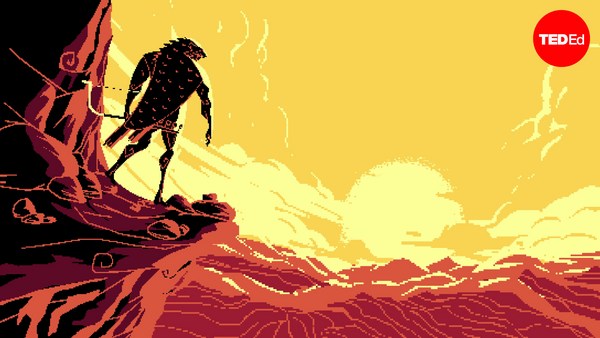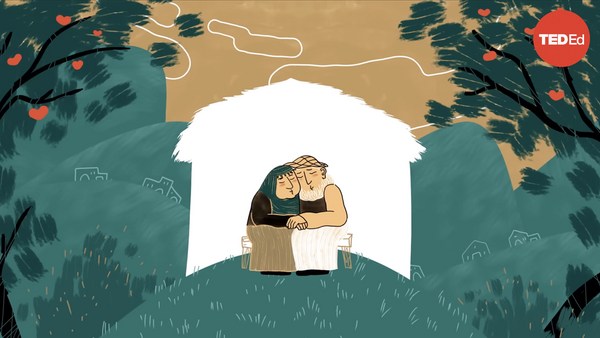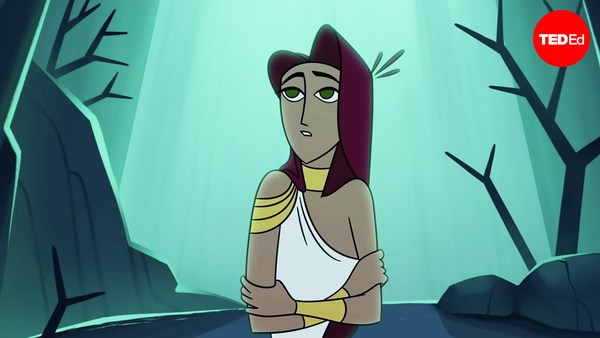Shielded from the gorgon’s stone-cold gaze, Perseus crept through Medusa’s cave. When he reached her, he took a deep breath, and in one sudden movement, drew his sickle and brought it down on her neck. Medusa’s head rolled to the ground and from her neck sprung two children.
One of them was Chrysaor, a giant wielding a golden sword; The other was the magnificent, white, winged horse, Pegasus. He was swifter than any other steed, and with the stomp of his hooves, he could alter mountains and draw streams from dry rock. No bridle could contain him— until one fateful day.
Bellerophon, prince of the Greek city-state of Corinth, seemed to have it all. But his ambitions exceeded his earthly circumstances. What he truly wanted was to be a hero so great that the gods would welcome him on Mount Olympus. Bellerophon believed that Pegasus would be key in helping him reach such heights.
One night, he visited the temple of Athena, the goddess of war and wisdom, and prayed for the power to appease the mighty animal. When Bellerophon woke, he found a magical golden bridle, and sped to the fountain that Pegasus drank from. As soon as the horse bent towards the water, Bellerophon jumped on his back and slipped the bridle on. Finally, Pegasus was subdued. With this conquest, Bellerophon felt that he was on his way to becoming a legendary hero. He trained for battle day and night. But one training session went horribly wrong, and Bellerophon mortally injured his brother, Deliades.
Disgraced, he was exiled to Argos, where King Proetus purified him. Bellerophon was resolved to repair his reputation, but the Queen of Argos had her eye on him. And when Bellerophon rebuffed her advances, she accused him of trying to seduce her, further tarnishing his honor.
King Proetus soon devised a plan to exact revenge. He banished Bellerophon and Pegasus and sent them to the kingdom of Lycia, carrying a note to Iobates, Lycia’s king. But unbeknownst to Bellerophon, he was carrying a decree for his own death. Iobates considered how to dispose of the youth and picked just the right monster for the job: the fire-breathing lion-goat-dragon Chimera that had long been terrorizing his kingdom. Bellerophon— eager to achieve greatness— jumped at the challenge.
He mounted Pegasus, and the two shot into the sky. Swooping above the earth, they saw the Chimera surrounded by its charred victims. Soon, they too were facing its firepower. In a sequence of agile aerial acrobatics, Pegasus dodged every blast from the Chimera as Bellerophon launched his arrows. Finally, Pegasus closed in on the beast at just the right angle, and Bellerophon dealt it a deadly blow.
Iobates was incredulous. He was glad to be rid of the monster, but still needed to deal with Bellerophon. So, he set forth more challenges, putting Bellerophon up against fearsome warriors, highly skilled archers, and, ultimately, Lycia’s best soldiers. Every time, Pegasus’ power turned the tide in Bellerophon’s favor.
Finally, Iobates had no choice but to concede that Bellerophon was a true hero. He even offered him his daughter’s hand in marriage. But Bellerophon’s sights were set far beyond the land of mortals. He was certain he must now be entitled to a place on Mount Olympus. So, he jumped onto Pegasus and urged him higher and higher.
Zeus watched as Bellerophon, buoyed by hubris, neared his palace. To punish the youth, he released a single gadfly, which beelined towards Pegasus and bit into his flesh. This was as high as Bellerophon would ever get. As Pegasus flinched, he flung his rider into the air, and Bellerophon fell careening back to Earth.
Pegasus, on the other hand, ascended with Zeus’s blessing. The gods welcomed him into the halls of Mount Olympus and immortalized him in a constellation. There in the night sky, Pegasus can be seen soaring, unfettered and free.


